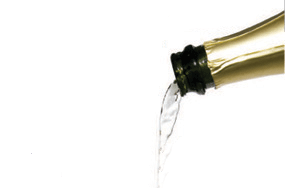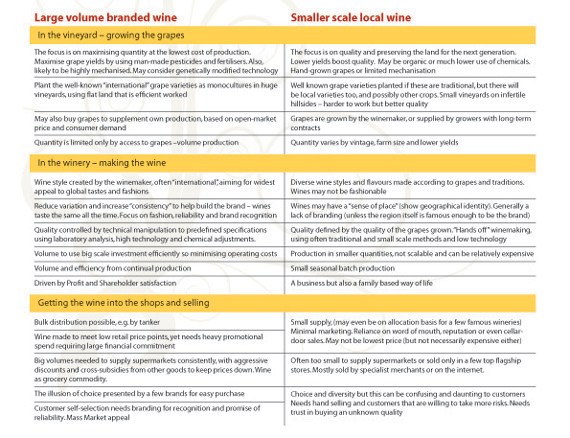Large Wine Producers vs Independent Growers – Who is Best?

Large Vs Local
By Paul Howard
Have you ever thought that wine drinking could be a political and philosophical act as well as a pleasurable one? Back in 1973, the economist E.F Schumacher wrote a seminal book called Small is Beautiful, a study of economics as if people mattered. It advocates an alternative approach to super-size mass production by using small-scale local industry and self-reliance as a means of improving the quality of life. This coincides with the emergence of global trends that, nearly forty years on, present us with major challenges. these include the environment, sustainability and globalisation. The very phrase ‘Small is Beautiful’ is now embedded in our culture and language – we’ve all heard it.
The ideas contained in Small is Beautiful continue to influence a wide range of organisations, including the Soil Association and Slow Food. Indeed, it is regarded as one of the top 100 most influential books published since the Second World War. What does this mean for wine drinkers?
“We are currently living in a kind of vinous paradise”
Let’s contrast the multinational wine producers that make branded wines on a large industrial scale with small independent producers that may make diverse and individual wines. The differences between these two are fundamental. They ultimately determine price and quality. It starts with how grapes are grown in the vineyard. It continues with how the wine is made and through to how and where we buy wine.
The table below contrasts some of the differences that may occur before we even pull that cork or twist that screw cap:
Of course this contrast is a simplified caricature. Few wine producers sit wholly on one side of the divide or the other. There are plenty of exceptions. Some very large producers defy their vast scale by making exceptional and exciting wines. Equally, there are plenty of small producers whose wines are at best mediocre and poor value. Especially those in famous wine regions.
These days in Britain we are currently living in a kind of vinous paradise. It is wine’s very diversity that makes it exciting and rewarding. Yet this is increasingly under threat from globalisation and large-scale enterprise.
Growth in wine consumption is driven by the supermarkets. They are now responsible for around 75% of UK retail wine sales. This figure continues to increase and gives them more and more market power. It is easy to knock them. Yet they should receive more credit for helping to democratise wine and convert us into a nation of wine drinkers. Their chief requirement is for growth in profits. Most easily this comes from discounting branded goods. Some of those wines are good, but many are deeply dull.
“Specialists know their suppliers personally”
These are the very wines produced in the huge volumes required to stock hundreds of outlets at tightly defined price points and participate in loss-leading deals. Look down the aisles and there appears to be a huge choice. However, this is an illusion. It really disguises a loss of true diversity, quality and flavour. Just a handful of brands are responsible for a quarter of all the wine that sells in Britain!
 The alternatives are the smaller and specialist independent wine merchants. They are able to stock smaller quantities of more individualistic quality wines. These will more often be wines made on a human scale. They offer a sense of place, a story, perhaps even emotion.
The alternatives are the smaller and specialist independent wine merchants. They are able to stock smaller quantities of more individualistic quality wines. These will more often be wines made on a human scale. They offer a sense of place, a story, perhaps even emotion.
Many of these specialists know their suppliers personally and some import their wines directly. The wines have to taste better to get repeat purchases! Specialists are usually genuine wine lovers who want to share their passion with their customers. They may not be able to compete at the basement end of the market but the wines they stock are usually no more expensive than the equivalent bottle at a supermarket.
“We have a surprising amount of choice”
Supermarkets swallow up high street specialists such as butchers, greengrocers and bakers. But independent wine specialists are surviving and even thriving. Developing an internet presence is helping that. Online shopping is now a major part of all our daily lives. It is no longer high risk, difficult or unreliable. Many smaller merchants now offer clicks as well as bricks. Just as importantly they usually have passion, authenticity and a healthy regard for the customers intelligence too.
Does any of this matter? Ultimately, it’s your freedom to choose how you buy and enjoy wine. Some will see my championing of the small as little more than a romantic notion. That it is just the lure of the underdog in a world of increasing globalisation. We are famous for being a nation of shopkeepers, and we still have a surprising amount of choice and an alternative to dull routine. So why not explore the world of the small? Try a wine merchant as an alternative. My bet is you’ll be in for a pleasant surprise. Every little helps, if you’ll forgive the pun.









